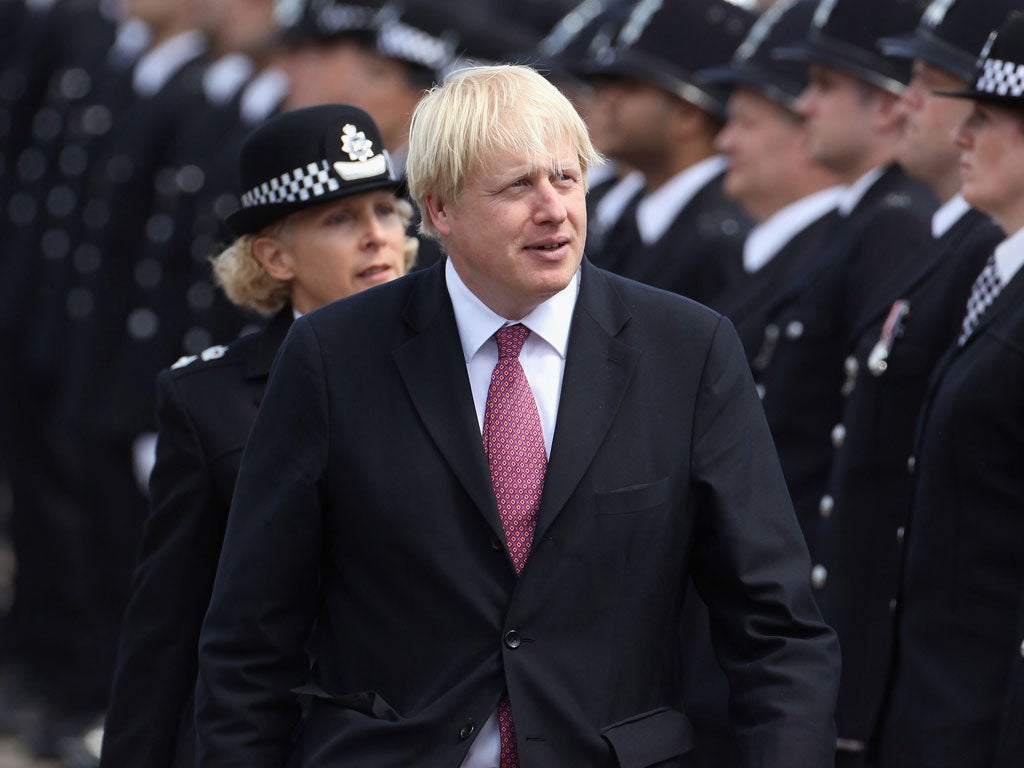New restrictions on briefing journalists are 'unreasonable', claim police chiefs

Your support helps us to tell the story
From reproductive rights to climate change to Big Tech, The Independent is on the ground when the story is developing. Whether it's investigating the financials of Elon Musk's pro-Trump PAC or producing our latest documentary, 'The A Word', which shines a light on the American women fighting for reproductive rights, we know how important it is to parse out the facts from the messaging.
At such a critical moment in US history, we need reporters on the ground. Your donation allows us to keep sending journalists to speak to both sides of the story.
The Independent is trusted by Americans across the entire political spectrum. And unlike many other quality news outlets, we choose not to lock Americans out of our reporting and analysis with paywalls. We believe quality journalism should be available to everyone, paid for by those who can afford it.
Your support makes all the difference.Police chiefs are threatening to open up a new front in the row over the Leveson report, by raising objections to proposals that would clamp down on their relations with journalists.
London's Mayor, Boris Johnson, last week raised doubts about Lord Justice Leveson's suggestion that police should stop giving off-the-record briefings to journalists – and insisted that briefings would "remain an important part of public life".
Police representatives, including crime commissioners and chief officers, have begun discussions on their formal responses to the Leveson proposals. But a number of senior officers have already registered their alarm over a number of the suggestions, which they claim would impose "unreasonable" restrictions on their conduct.
"We are all well aware that there have been problems with the relationship between some officers and the press, and the Leveson inquiry has made this clear," one senior official said last night. "But there is a legitimate basis for most contacts between the police and the media, which properly serve the public interest. It is difficult to see how recording every conversation between an officer and a journalist is practical or worthwhile."
One veteran member of the Police Federation, which represents rank-and-file officers, said: "I regret the inference that officers cannot offer a friendly word of advice to a journalist without it being a dereliction of duty. We need to enforce the guidelines that we already operate under, rather than think of more ways to stop us doing our jobs."
Lord Justice Leveson said in his report that: "The term 'off-the-record briefing' should be discontinued."
He added: "The term 'non-reportable briefing' should be used to cover a background briefing which is not to be reported, and the term 'embargoed briefing' should be used to cover a situation where the content of the briefing may be reported but not until a specified event or time. These terms more neutrally describe what are legitimate police and media interactions."
The judge ruled that senior police officers should be expected to record details of any contact they have with reporters and make the details widely available. He also called for a ban on the press or public being told by the police if a crime suspect has been arrested.
In a further attempt to limit "unofficial" contacts with the press, he suggested that police whistle-blowers should not take their concerns to journalists, but to seek out other "confidential avenues in which they may have faith", such as the Independent Police Complaints Commission.
Mr Johnson, a former journalist who as London Mayor oversees the Metropolitan Police, attempted to play down the Leveson proposals. He said: "Clearly, briefings are going to remain an important part of public life. Officials one way or the other are going to have to have trust in the media."
The "interim guidance" issued by the Association of Chief Police Officers (Acpo) states that: "Occasionally there may be a legitimate reason for an off-the-record conversation or briefing to take place, such as where news reporting may have an impact on a current investigation or as a means of preventing inaccuracies or misunderstanding."
Join our commenting forum
Join thought-provoking conversations, follow other Independent readers and see their replies
Comments